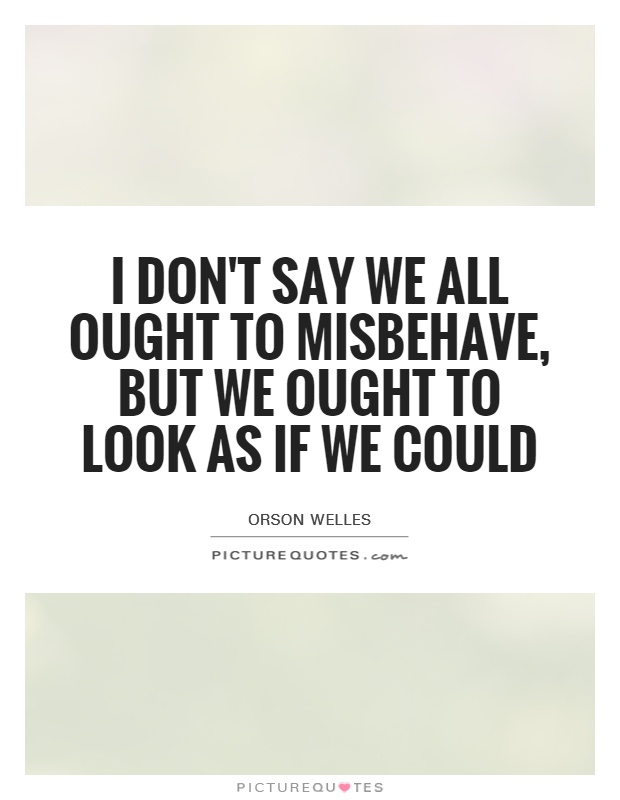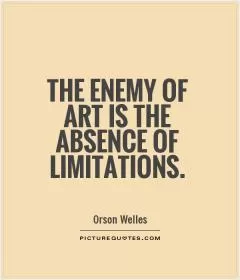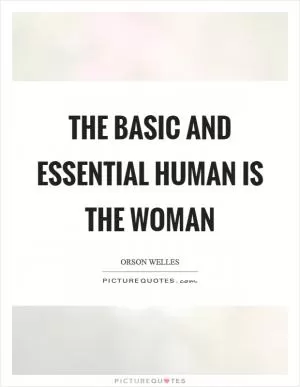I don't say we all ought to misbehave, but we ought to look as if we could

I don't say we all ought to misbehave, but we ought to look as if we could
The quote "I don't say we all ought to misbehave, but we ought to look as if we could" is often attributed to British writer and philosopher George Bernard Shaw. This statement encapsulates the idea of challenging societal norms and expectations, while also maintaining a sense of individuality and freedom.To misbehave is typically seen as acting in a way that goes against established rules or conventions. It can involve breaking laws, defying authority, or simply going against the grain of what is considered acceptable behavior. While some may view misbehavior as negative or disruptive, others see it as a form of rebellion or resistance against oppressive systems.
In the context of the quote, Shaw is not necessarily advocating for outright disobedience or chaos. Instead, he is suggesting that individuals should have the freedom to express themselves authentically and not be constrained by societal expectations. By appearing as if one could misbehave, it implies a sense of independence and self-assurance that is not easily swayed by external pressures.
Looking as if one could misbehave can be interpreted as projecting a sense of confidence and defiance in the face of conformity. It is about asserting one's own agency and autonomy, even if it means challenging the status quo. This attitude can be empowering and liberating, as it allows individuals to break free from the constraints of societal norms and expectations.
However, it is important to note that misbehavior should not be equated with harmful or destructive actions. It is about pushing boundaries and questioning authority in a way that is constructive and meaningful. By embracing the idea of looking as if we could misbehave, we are asserting our right to be true to ourselves and not conform to the expectations of others.












 Friendship Quotes
Friendship Quotes Love Quotes
Love Quotes Life Quotes
Life Quotes Funny Quotes
Funny Quotes Motivational Quotes
Motivational Quotes Inspirational Quotes
Inspirational Quotes